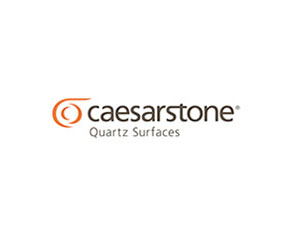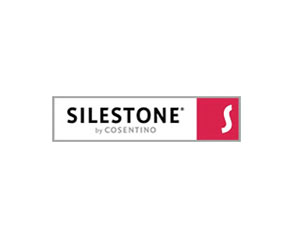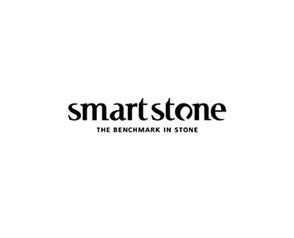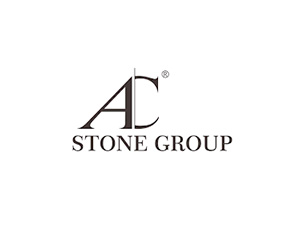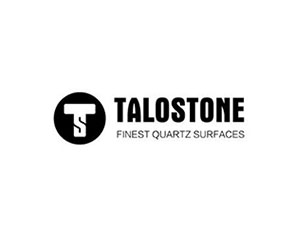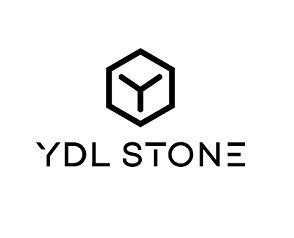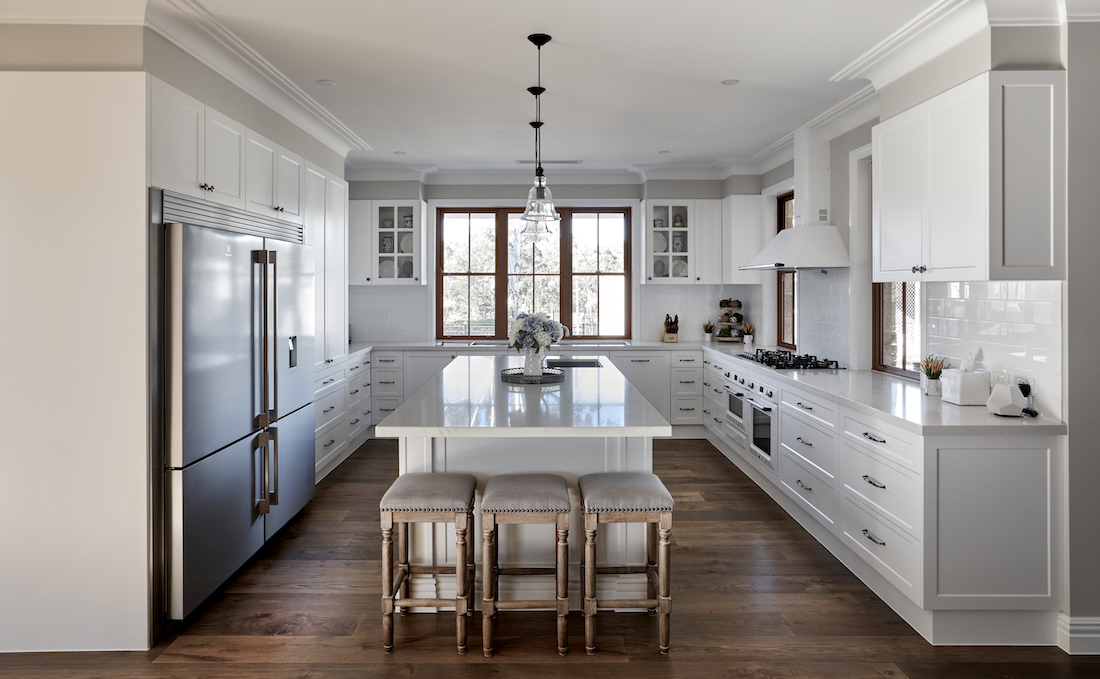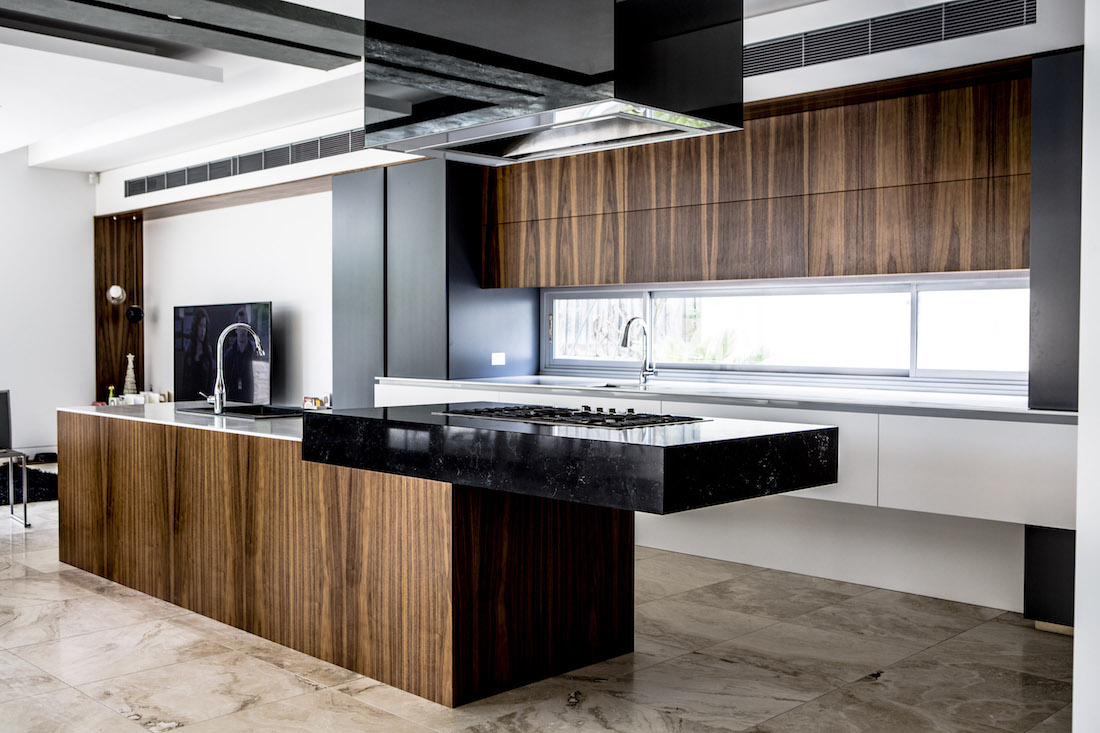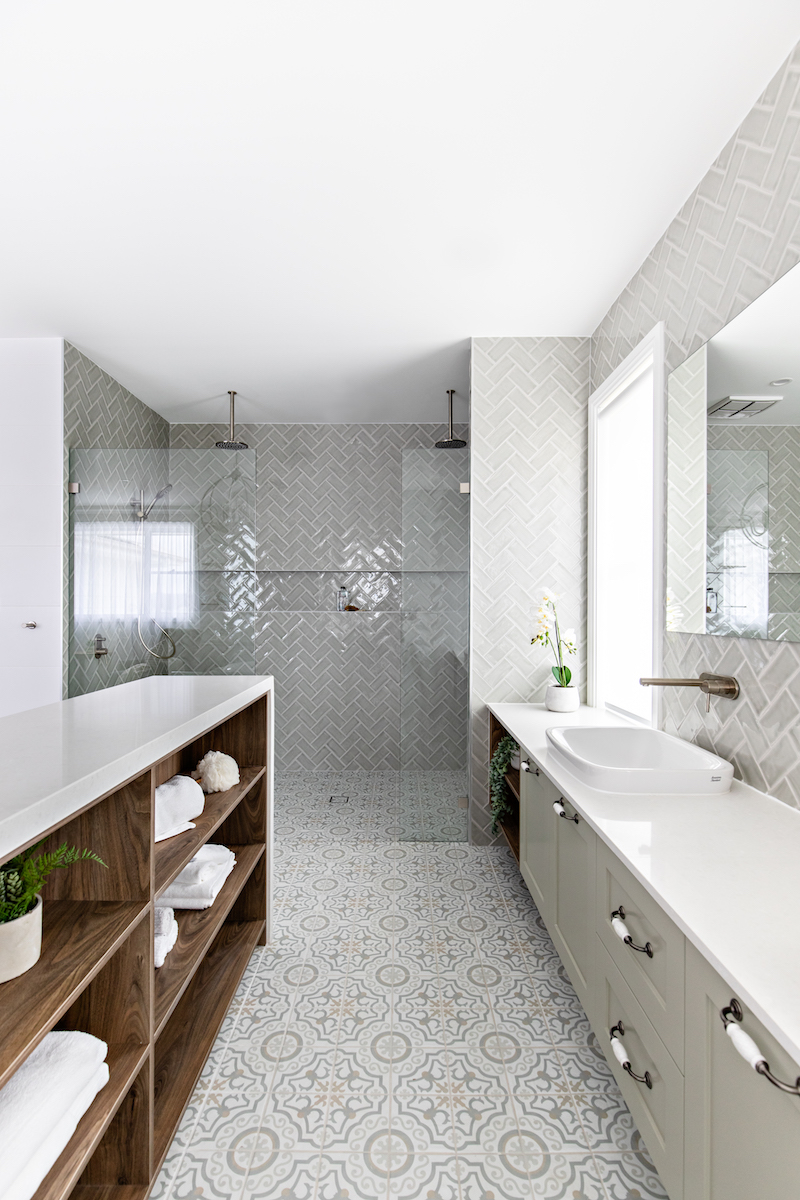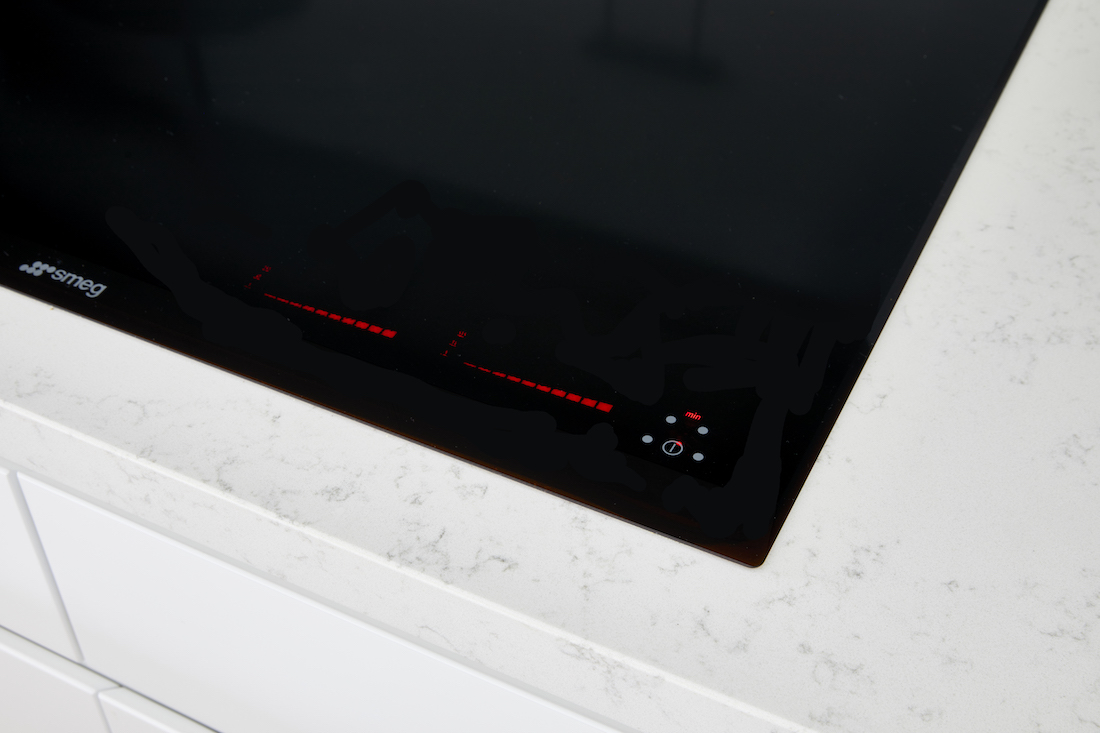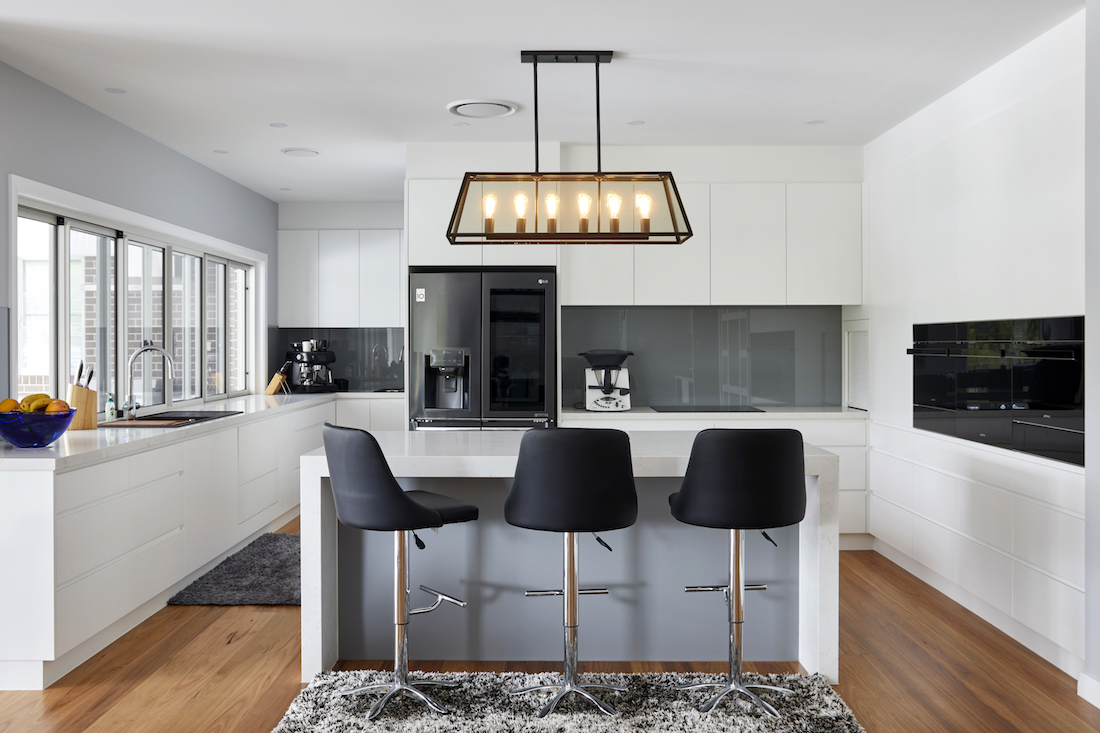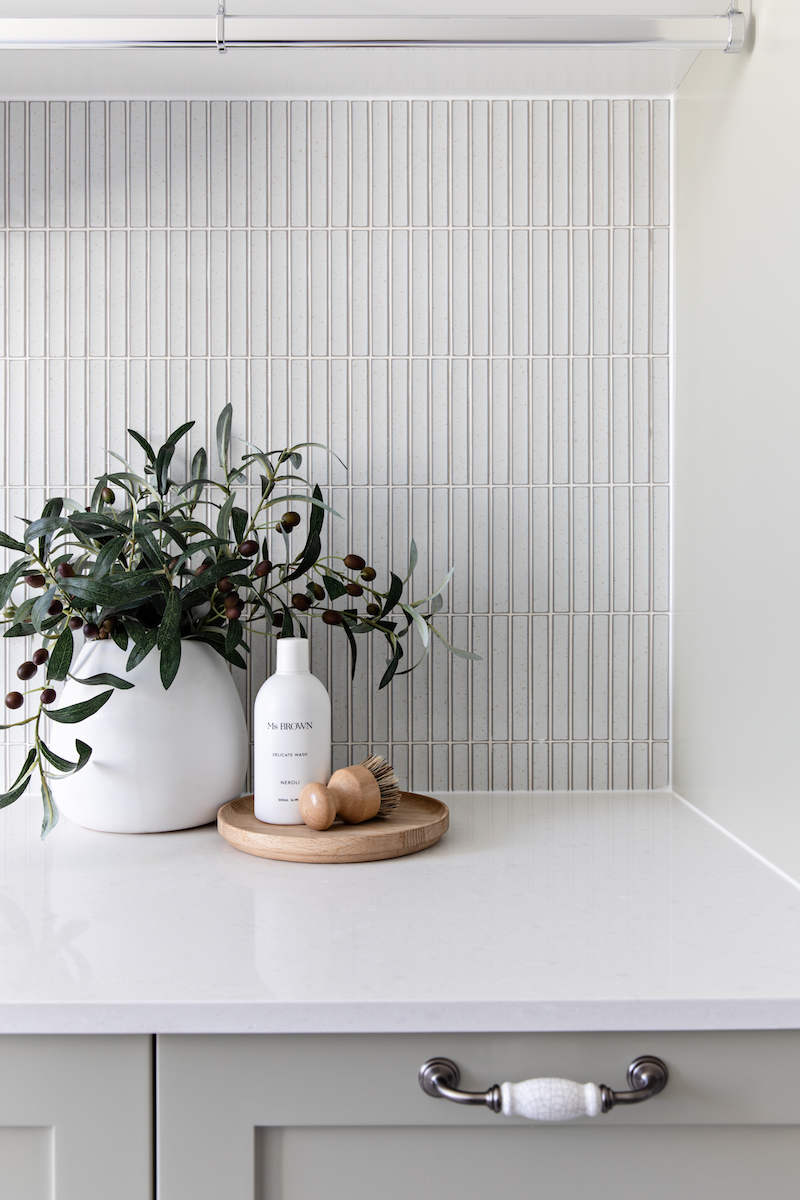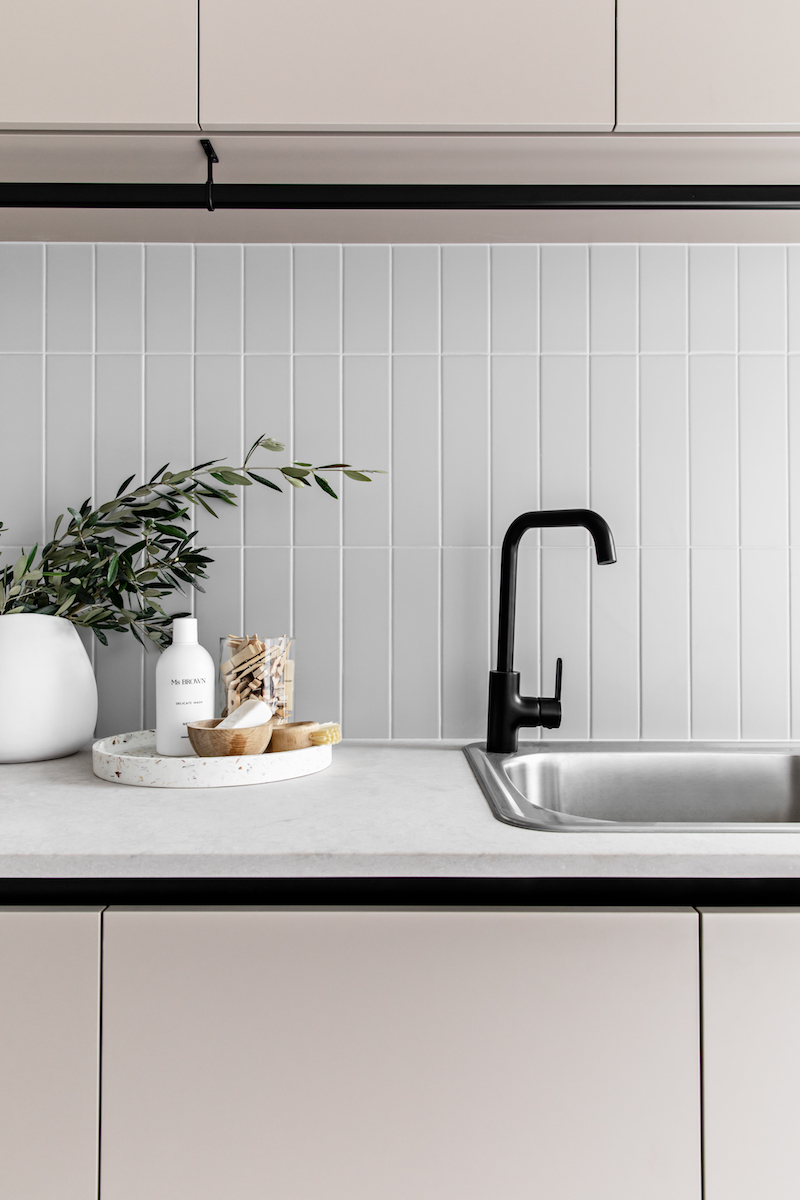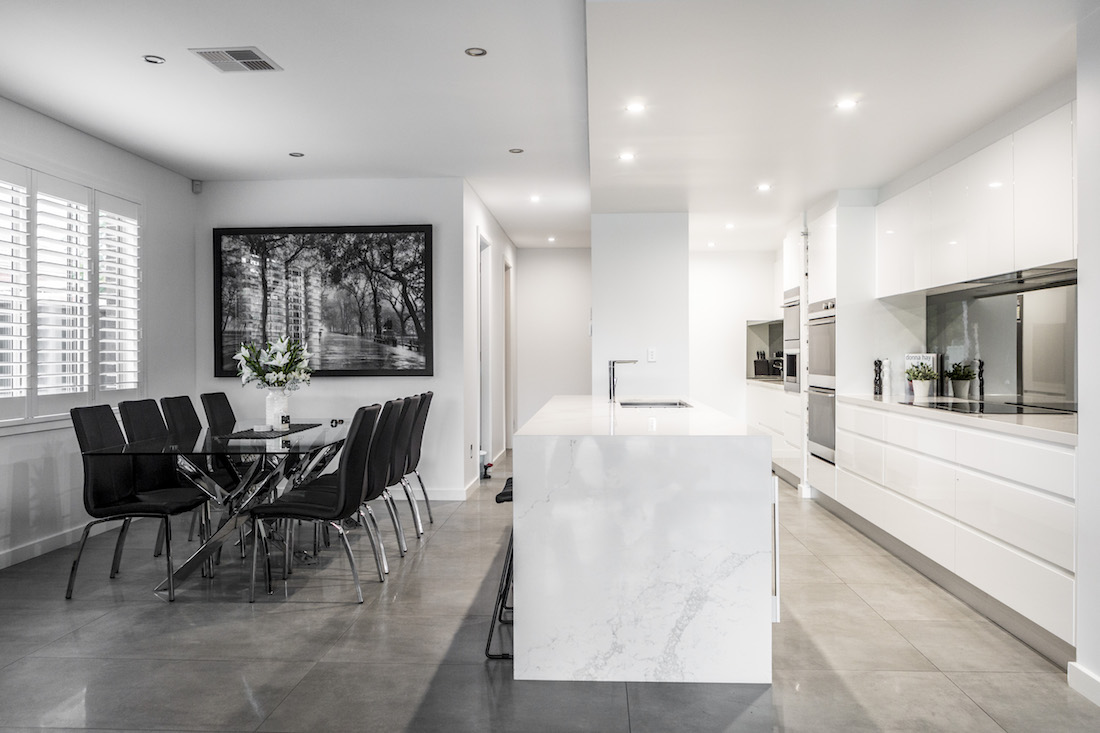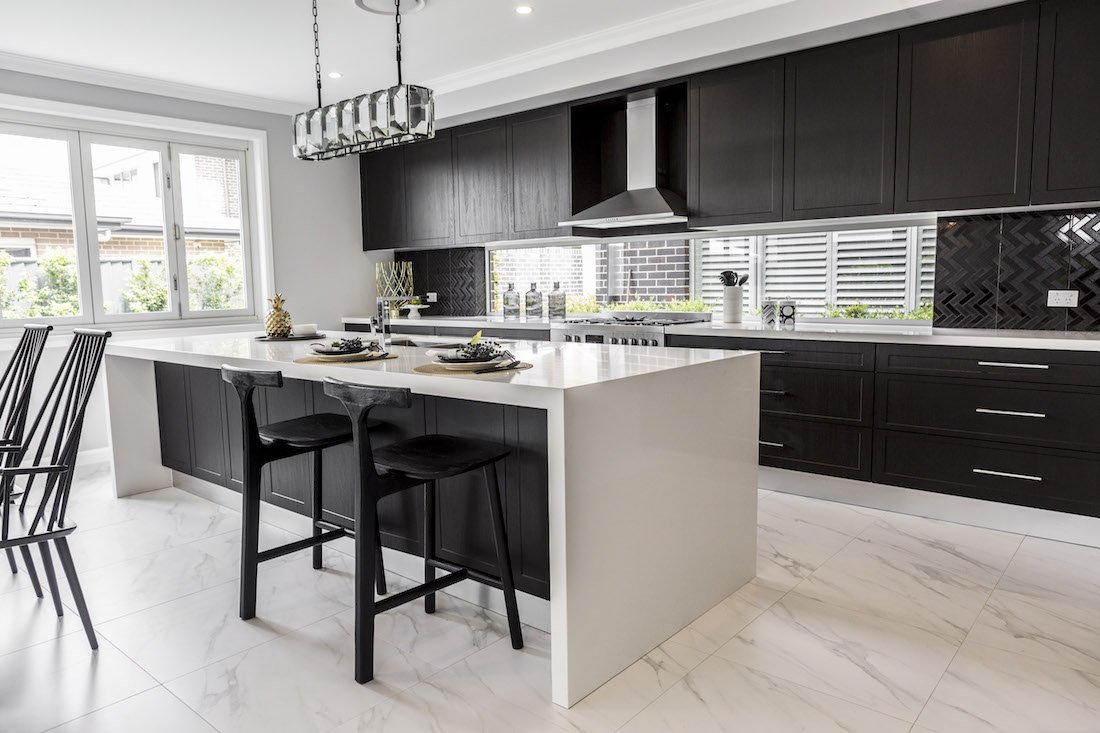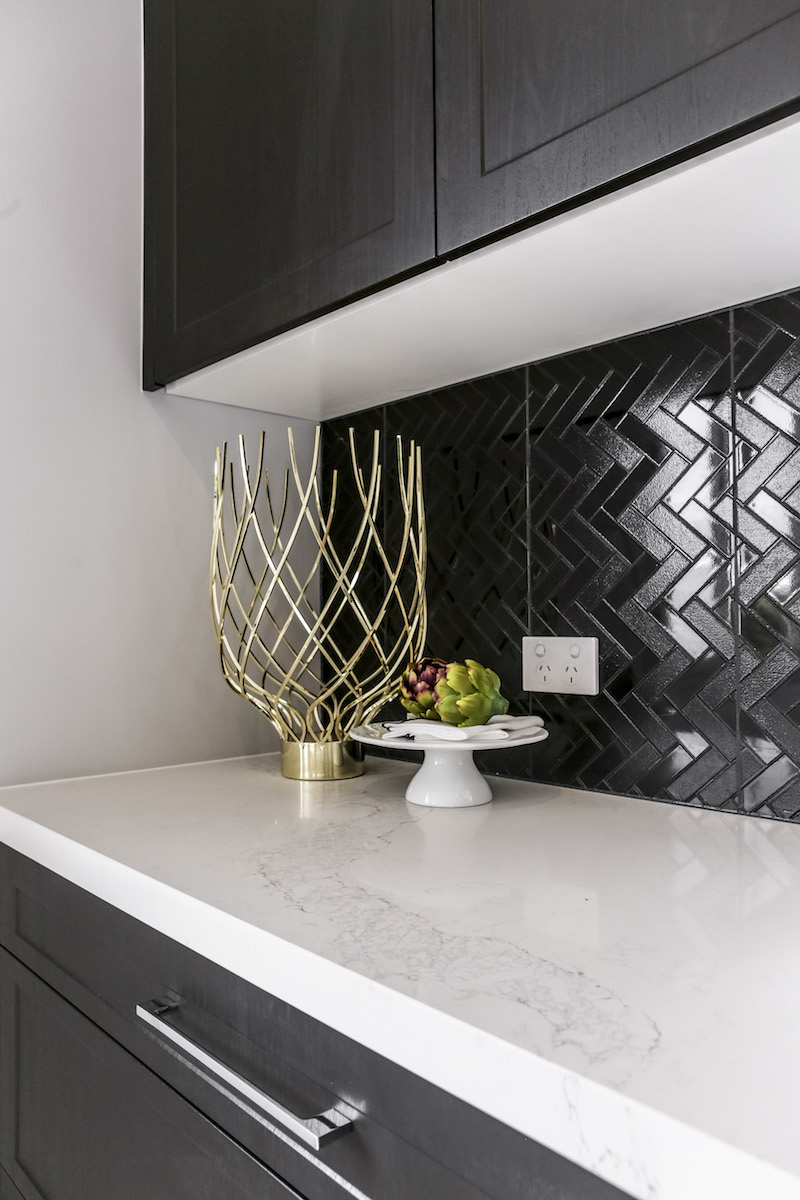About Reconstituted Stone
Reconstituted Stone (also known as Engineered Stone) is manufactured from a mix of stone aggregate chips (most commonly quartz or marble, but also igneous rocks such as granite and basalt); mineral fillers (generally the ground aggregate); a resin binder (typically an unsaturated polyester); pigments and additives. We proudly work with all of the reputable suppliers that support their product with a minimum of 10 years Warranty (e.g Caesarstone, Quantum Quartz, AC Stone, Smartstone, Silestone, YDL, Talostone, Essa Stone, SMG …etc. )
UPDATE (October 2023)
Engineered stone, traditionally contains a high percentage of silica because it’s made up mostly of quartz. However, there have been concerns about the health impacts of respirable crystalline silica dust, especially for workers who cut, grind, or polish these surfaces, leading to the need for low-silica alternatives.
Manufacturers who aim to produce engineered stone with lower silica content can follow several strategies:
Alternative Fillers: Use alternative non-silica minerals or materials to replace a portion or all of the quartz filler. This can include materials like marble, metal flakes, recycled glass, etc. The goal is to maintain the desired properties (strength, durability, appearance) while reducing silica content.
Resin Content: By increasing the amount of resin in the mixture, the silica content, by definition, will decrease. However, there’s a limit to this approach, as too much resin can compromise the mechanical properties of the final product.
Enhanced Compaction: Techniques such as vibrocompression under vacuum can be employed to increase the density of the engineered stone, thereby allowing for a smaller amount of quartz to be used.
Silica-Coating: In some experimental setups, quartz particles are coated with non-silica materials. This reduces the amount of respirable silica that can become airborne during cutting or polishing, although the overall silica content of the material might remain the same.
Engineered Porosity: Introducing controlled porosity can reduce the overall amount of silica, but this can also affect the material’s mechanical and aesthetic properties.
Alternative Production Methods: Nano-cemented materials or geopolymers might be used to produce engineered stone-like surfaces with much lower silica content.
Safety During Manufacturing: While reducing the silica content in the stone is one approach, ensuring that workers are protected during manufacturing, cutting, and installation is equally crucial. This can include wet-working methods to reduce dust, proper ventilation, and appropriate personal protective equipment.
Manufacturers aiming to introduce low-silica engineered stones need to strike a balance between maintaining the aesthetic and functional qualities of their product, ensuring worker safety, and meeting any regulatory requirements.
FAQ
The term “engineered stone” refers to a composite slab of stone that is generally made from around 90% crushed quartz and which is bound together using a polymer resin.
The extra 10% is generally made up of extra materials like metals, mirrors, shells, or coloured glass which are added in for aesthetic reasons. For more information, read about engineered stone here.
Engineered stone can be used for many applications within your home. The options are endless but here are some of the areas which we recommend you use engineered stone:
- Kitchen Bench Tops
- Vanity Bench Tops
- Splashbacks
- Laundry Bench Tops
- Dining/Coffee Tables
- Feature panels
For more information, please read about engineered stone benchtops here.
Engineered stone is a non-porous, heat resistant and stain resistant material that requires a low level of maintenance. There is a beauty to the uniqueness of natural stone that cannot be replicated with engineered stone, however it is a more porous material and will absorb spills if not sealed properly and regularly.
For more detailed information on how the stones compare, please click here.
Engineered benchtops are heat-resistant, stain-resistant and scratch-resistant. Our manufacturers have spent millions of dollars on research and development to ensure a wear-resistant surface. Avoid placing hot pots/pans directly onto the stone, use chopping boards for any cutting, and avoid abrasive cleaners to lengthen the life of your engineered stone bench top.
For detailed maintenance information, please click here.
The cost of any stone project is entirely dependent on the scope of works. However, if you require a specialised cutting job, have a complex design or require a large amount of stone, natural stone will likely be dearer as it requires a higher level of skilled workmanship and care to manufacture the benchtop. We do, however, have a wide range of colours and we can provide a cost-effective alternative to meet your budget if you so desire.
For more information on the difference between the two stones, please click here.
We’re here to help.
Contact us today.
Call us today on (02) 9890 2877 or enquire online
We look forward to assisting you with your enquiry. Click on the button below to send us an online enquiry.
Request a QuoteFollow our Instagram
@stonetechaustraliaContact Us
Showroom / Office
Trading Hours
- Monday – Friday 9am to 5pm
- Saturday – Closed (Please Check Google Search for details)
- Sunday – Closed
